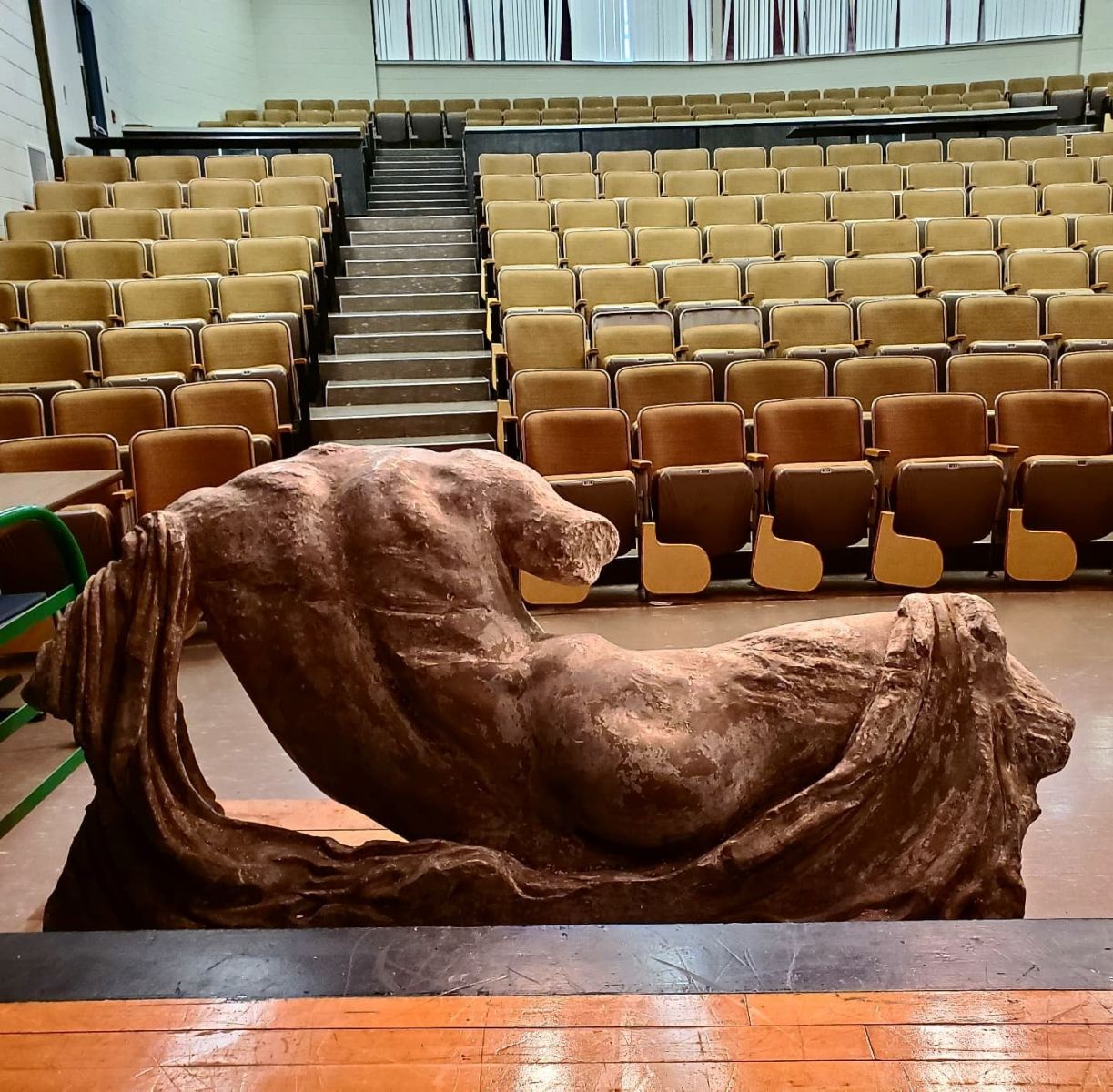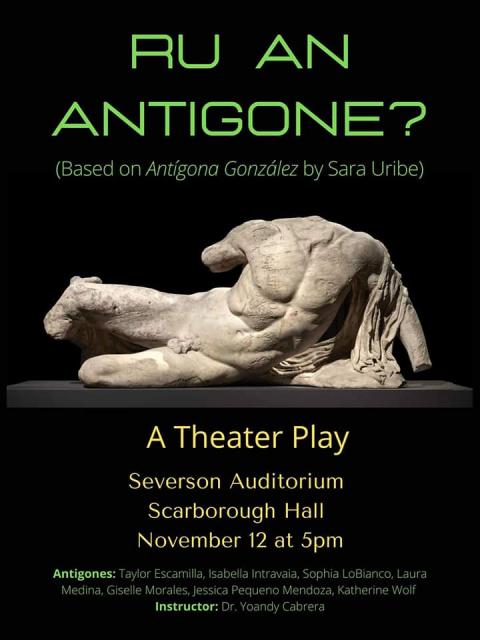Yoandy Cabrera Ortega
January 24, 2022
RU an Antígone?, a play based on Sara Uribe’s Antígona González, was performed by Rockford University students on November 12, 2021. The performers were part of a fall semester course, CLAS 262, “Staging Politics in Antiquity and Today.” Students from different fields — including Nursing, Biochemistry, Education, Languages, and Political Science — took the stage to become Mexican Antigones and talk about missing people, violence, and disappearances in Latin America today.
On stage for the performance were two bodies, transported from the basement of the same building where the performance took place, Rockford University’s Scarborough Hall. A male and a female body. Two bodies “made of stone.” Two plaster casts of two of the so-called “Elgin marbles.” These castings came from Europe to the Art Institute of Chicago in the 19th century and, from there, to Rockford University in 1946. Those mythological images that have come from Europe to the Americas are part of our heritage.
Similarly, the story of Antigone has traveled from ancient Thebes to Mexico to prompt reflection and discussion about the thousands of disappearances in Latin America during the last decades. The Greek Antigone could bury her brother’s corpse, but this Mexican Antígona is still searching among the dead for the corpse of her brother.
.jpeg)
Figure 1: Actors onstage. Image courtesy of Yoandy Cabrera Ortega.
In this play, we also go from the first Greek actor ever, saying “I am Dionysus,” to these modern Mexican Antigones stating, “I did not want to be an Antigone, but it happened to me.” We go from the chorus to the first character, and then back to the chorus. Because “we are many,” because we “are one, and the same.” Antígona is the plural voice of “the father or daughter or brother or uncle or sister or mother or son of the dead and abandoned body.” The theatrical scene becomes a skene (tent) again, but now is the tent of the protesters, with posters and pictures of those who have been taken and disappeared.
In CLAS 262, we worked with the Rockford University archive. Voices of alumni who wrote about Antigone and Oedipus during the 19th and 20th centuries have joined us to be part of this journey. We go from the Greek sculptures in the basement to the voices from the RU archive and then to our own time, where other bodies in Mexico, Colombia, Chile, and Cuba have been rising and falling, rising and falling, victims of violence and tyrannies. And still, they continue, willing to speak their truth. Bodies of the past and the present, dead and living bodies, beloved and hated bodies. “Name them all so as to say: this body could be mine.”
.jpeg)
Figure 2: Props from RU an Antígone? Image courtesy of Yoandy Cabrera Ortega.
Cast and Crew
Antigones
Taylor Escamilla (Political Science), Isabella Intravaia (Nursing), Sophia LoBianco (Education), Laura Medina (Spanish), Giselle Morales (Biochem), Jessica Pequeno Mendoza (Spanish), Katherine Wolf (English)
General Assistant
Alyssa Giardono
Instructor
Yoandy Cabrera

Figure 3: One of RU's casts. Image courtesy of Yoandy Cabrera Ortega.
Authors


